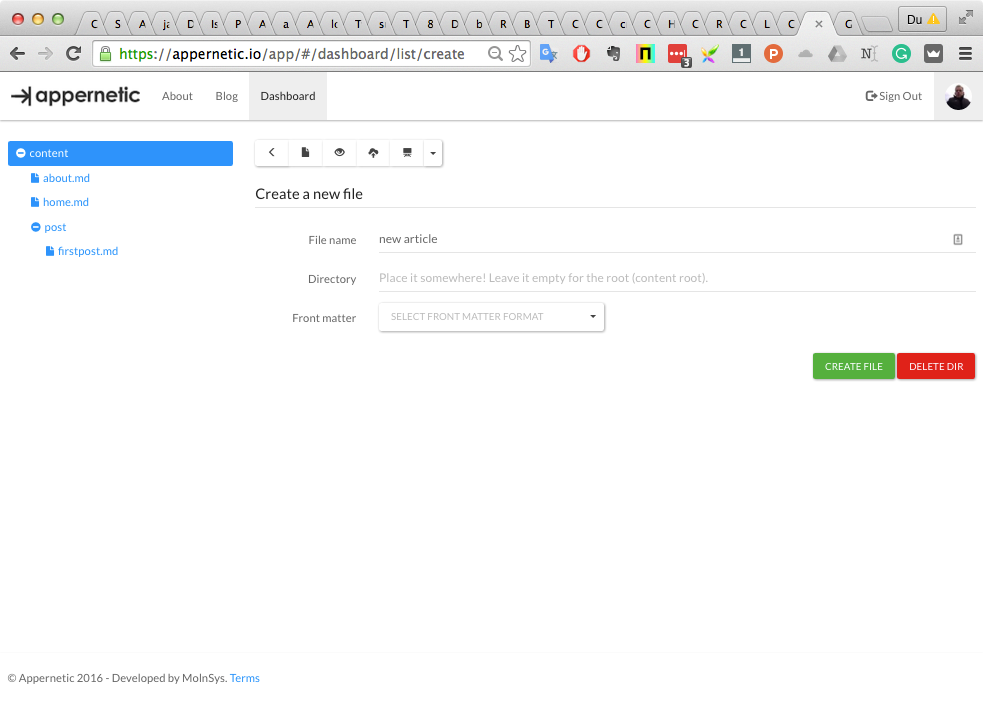Appernetic
About Appernetic
Appernetic Pricing
Variable price: $0.5 - $20.95. Pay what you think it's worth.
Starting price:
$0.50
Free trial:
Available
Free version:
Not Available

Other Top Recommended Content Management Software
Most Helpful Reviews for Appernetic
1 Review
Oscar
Used free trial
OVERALL RATING:
5
EASE OF USE
4
CUSTOMER SUPPORT
5
Reviewed April 2016
I have used WordPress, Joomla and Weebly before and this service was way better to use.
Pros: - You have far more control over every aspect of your blog. - Thanks to Hugo you generate your site about 50x faster than with any other static site generator. - No installation of Ruby gems, git, database etc... - It has a powerful content model out of the box. - Disqus is integrated for blog comments. - Use Zapier, Mailmunch or SumoMe with hugo-bootstrap-premium theme. - No overcluttered user interface. - You can add your custom domain name. - Version controll. - Sync with GitHub and your own computer. - Support questions was answered fast and accurate. Cons: - It was hard to find a theme that I liked. - No asset pipeline. But this is only a concern if you are a developer and build your own themes and then it is not a problem because you already have built your own asset pipeline anyway. - There is no easy way to add a plugin or extension engine to Hugo. But instead shortcodes, dynamic data sources, menus, syntax highlighting and tables of contents are all built.




